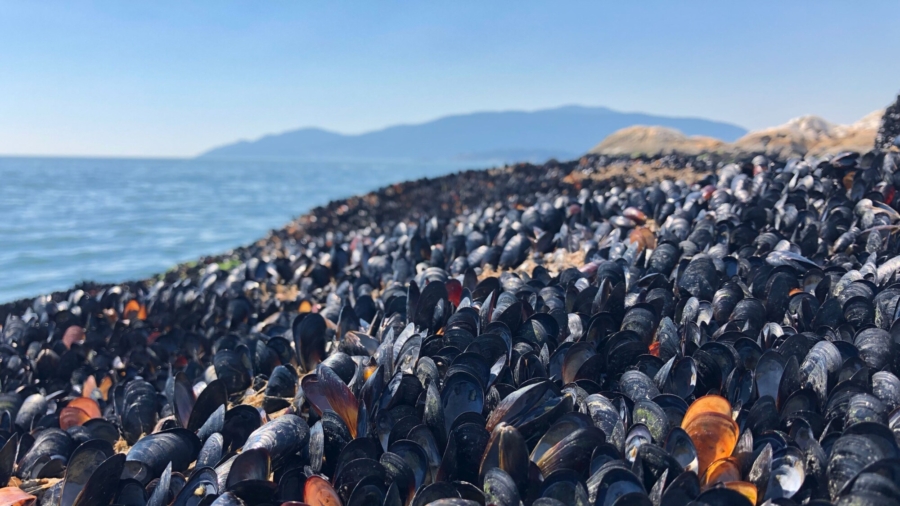The heat wave that ravaged British Columbia last week is being blamed for a massive die-off of mussels, clams, and other marine animals that live on the beaches of Western Canada.
Christopher Harley, a professor in the zoology department at The University of British Columbia, found countless dead mussels popped open and rotting in their shells on Sunday at Kitsilano Beach, which is a few blocks away from his Vancouver home.
“I could smell that beach before I got to it because there was already a lot of dead animals from the previous day, which was not the hottest of three,” he said. “I started having a look around just on my local beach and thought, ‘Oh, this, this can’t be good.'”
The next day, Harley and one of his students went to Lighthouse Park in West Vancouver, which he has been visiting for more than 12 years.
“There’s a really extensive mussel bed that coats the shore, and most of those animals had died,” he said.
Mussels attach themselves to rocks and other surfaces and are used to being exposed to the air and sunlight during low tide, Harley said, but they generally can’t survive temperatures over 100 degrees for very long.
Temperatures in downtown Vancouver were 98.6 degrees on June 26, 99.5 on June 27, and 101.5 on June 28.
It was even hotter on the beach.
Harley and his student used a FLIR thermal imaging camera that found surface temperatures topping 125 degrees.
At this time of the year, low tide hits at the hottest part of the day in the area, so the animals can’t make it until the tide comes back in, he said.
The CNN Wire contributed to this report


